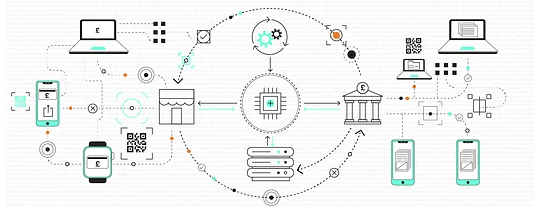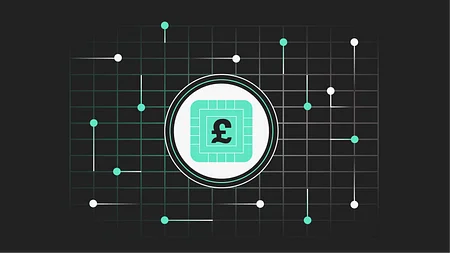There has never been a more important time to be truly digital

There’s a lot going on in the world right now, and the reaction from all of us is almost a war effort to ensure society still functions through one of its biggest ever shifts.
Digital has moved from a nice-to-have cost reducer or growth engine to the only way to do business. But most in financial services just aren’t set up to be truly digital. It’s not hyperbole to say that for many financial institutions, doing digital brilliantly is now a matter of survival and urgency.
Apple Card and many others are delaying repayments, mortgage payments are being deferred and the likes of Amazon are hiring 100,000 new employees to keep up with demand. But what comes next?
What happens when there is no BAU
In recent days, central banks have considered removing cash from society, branch footfall has reduced dramatically and financial markets have witnessed a crash at least as big as, if not bigger than, 2008. All of this combined with increased social distancing, reduced global trade and reduced interest rates will impact everyone, especially banks.
Banks will be asked to step in and help keep businesses from going underwater, but the reality is there’s only so much of that that they can do before they themselves are in trouble. Central banks have already started printing money and reducing interest rates; already, they’re running out of bullets.
A new hope
Yet in spite of all of the fear on the horizon, all of the doom and gloom, amazing things have been happening. Whether it’s people helping the vulnerable in their communities with shopping, a story about 3D-printed ventilators making it into hospitals in a matter of days, or an anecdote a banker told me just yesterday… Things are changing.
Just yesterday, I was talking to a senior banker in an organisation who’d been struggling to embrace remote work properly. They couldn’t get the systems working, or the working patterns. They’d spent money, hired specialists, everything. Six years into trying to crack remote work and they hadn’t done it.
It’s a shame it takes a crisis to get shit done
Now, six days into “full crisis mode,” they’d got half of their staff working remotely and expected to be able to close key offices in a week. It’s amazing what you can get done in a crisis. It’s a shame it takes a crisis to get shit done.
There are some really important problems that need solving
I truly believe that financial services is an industry at the core of the global economy. Impacting financial services impacts everything else. There are some massive headwinds that need to be solved.
- Online lending is the only way to lend: Banks make money from lending, but lending is also how small businesses stay alive. It’s how things get built. Without lending, we will see massive job losses. But. Banks need to radically change how they do lending. When it can take a bank nine months to change an interest rate in just system changes alone, how will banks keep up with the digital shift?
- Online ID+V is the only way to open accounts: For a long time, the branch or the letter/post was the catch-all and fallback to a manual process for older organisations. We’re now in a world where if you can’t open accounts 100 percent digitally, you can’t open accounts – especially if the office where you used to process the bits of paper is now closed.
- Customers that struggled with digital need help: There is a fear of the known for many customer groups, who know what they know and find it easier to deal with a person in-person than a digital product (a large part of this is due to the brands they trust having difficult account opening or onboarding processes in digital). But I really like what Barclays did with Digital Eagles, helping the vulnerable get digital. What are the digital banking, insurance, pension, starter packs for families? How can families’ younger generations help older ones and are financial services companies ready for these changes?
- When there is no cash, digital payments have to be brilliant: Have you ever tried to make an online payment and the process has been so hard you just gave up? When the only way to pay is digital, this isn’t an option.
It’s now mission critical to get digital right.
Hard times sometimes force us to do difficult things we probably should have done sooner
Set against the context of less profit (because interest rates are low) and higher impairments (consumers and individuals failing to pay back loans), the profitability of running a bank or insurance firm just got a lot more challenging.
High-cost legacy processes are no longer an option. Hard times sometimes force us to do difficult things we probably should have done sooner. When it’s a case of keeping the lights on and weathering the storm, having a truly digital financial services company is no longer a growth option; it’s survival.
Why the shift is needed
For a long time we’ve been harping on about “analogue to digitised to digital”, but there’s a reason for that. Most “digital” is still a layer over the top of aging legacy processes, systems and culture in financial institutions.Those systems cost billions of dollars a year to run in the largest organisations, and have encased in cement the ways of working from financial services in the 1980s. They baked in assumptions about how you credit score, or underwrite or identify someone.
Putting a “layer” of digital over the top of these systems just creates more cost. Indeed, financial institutions' tech cost has been increasing year-over-year at a faster rate than inflation for many decades. This tech doesn’t support billions of customers and live video; it supports holding your balance or policy and making payments. You’d think for all of that spending on “big FI” digital would be great. It’s not.
It’s now mission critical to be able to make change quickly
Making the shift often means being able to start small and identify the business case that washes its own face quickest. My favourite case study here is OakNorth. It’s a challenger bank everyone seems to forget. It’s profitable, it’s growing and its cost-income is close to 30% (meaning, for every £1 in revenue, they make 70p in gross profit). Compare this with most big banks’ cost-income, which sits at 65% (for every £1 in revenue they make 35p in gross profit).
If we’re in a world where profit is going to be hit, being less profitable already not only damages the share price, it potentially risks the entire business.
The target
It’s now mission critical to be able to make change quickly. But if it takes nine months to change an interest rate, how do you keep up with the market? The board strategy in most large organizations often doesn’t keep in mind some key capabilities of digital.
Every process should be born digital
Meaning, what if you re-imagined onboarding, credit, risk, fraud, payments, even the ledger? What would those processes look like? This isn’t process re-engineering; it’s business strategy.
Everything must be configurable in near real time
If the market moves, how do you change your products? How do you test and launch new products? What is the lowest cost way to trial a new product concept in days, not years.
Focus on what you’re great at
Most FIs are still massively vertically integrated, not unlike how in the early 1900s, Ford owned the plants that produced the rubber and steel they eventually assembled into cars. Big FIs have talked a good game about being “platform” businesses, but they have no platform when the underlying tech and processes are based in analogue. But they are balance sheets with a licence, and that is ONE HECK of an asset.
There is simply so much to do.
If you’re up for doing something special, we’d love to hear from you and see if we can help.
How we can help
Digital is no longer a nice to have. Becoming truly digital means shifting not just what you do but how you do it across your value chain and operating model. We live and breathe the start-up approach. We have a remote-first approach and can deliver in any circumstances.




